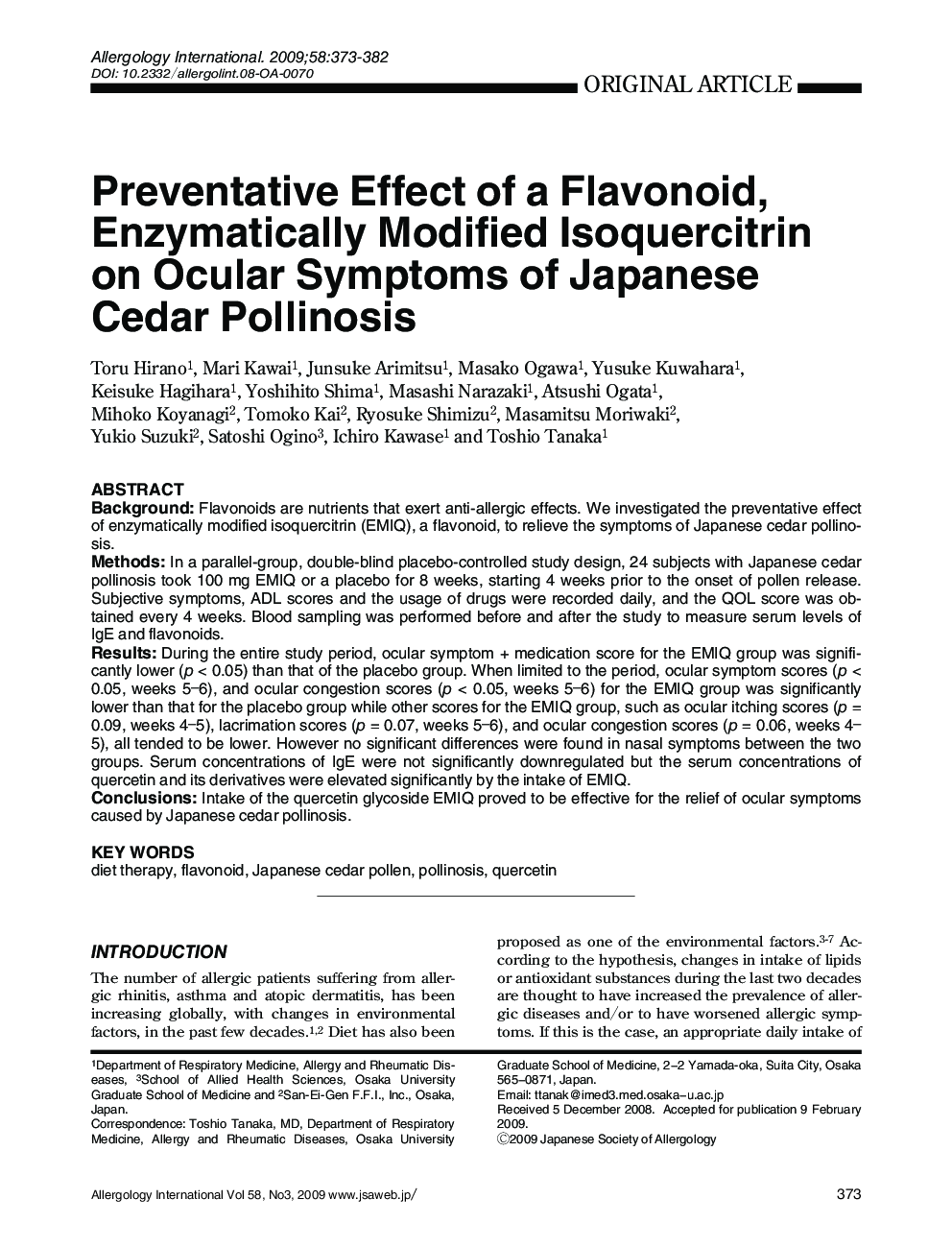| Article ID | Journal | Published Year | Pages | File Type |
|---|---|---|---|---|
| 3341025 | Allergology International | 2009 | 10 Pages |
ABSTRACTBackgroundFlavonoids are nutrients that exert anti-allergic effects. We investigated the preventative effect of enzymatically modified isoquercitrin (EMIQ), a flavonoid, to relieve the symptoms of Japanese cedar pollinosis.MethodsIn a parallel-group, double-blind placebo-controlled study design, 24 subjects with Japanese cedar pollinosis took 100 mg EMIQ or a placebo for 8 weeks, starting 4 weeks prior to the onset of pollen release. Subjective symptoms, ADL scores and the usage of drugs were recorded daily, and the QOL score was obtained every 4 weeks. Blood sampling was performed before and after the study to measure serum levels of IgE and flavonoids.ResultsDuring the entire study period, ocular symptom + medication score for the EMIQ group was significantly lower (p < 0.05) than that of the placebo group. When limited to the period, ocular symptom scores (p < 0.05, weeks 5–6), and ocular congestion scores (p < 0.05, weeks 5–6) for the EMIQ group was significantly lower than that for the placebo group while other scores for the EMIQ group, such as ocular itching scores (p = 0.09, weeks 4–5), lacrimation scores (p = 0.07, weeks 5–6), and ocular congestion scores (p = 0.06, weeks 45), all tended to be lower. However no significant differences were found in nasal symptoms between the two groups. Serum concentrations of IgE were not significantly downregulated but the serum concentrations of quercetin and its derivatives were elevated significantly by the intake of EMIQ.ConclusionsIntake of the quercetin glycoside EMIQ proved to be effective for the relief of ocular symptoms caused by Japanese cedar pollinosis.
